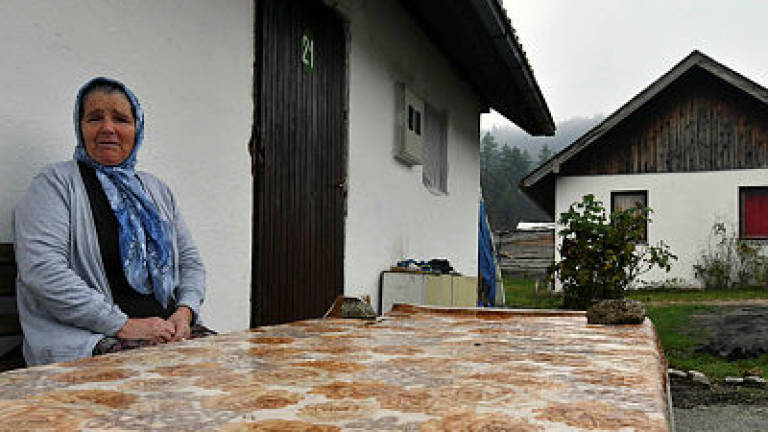Bosnia's 'eternal refugees' await Mladic verdict

IN 1994, she was assigned barrack number 21 at the Jezevac camp for displaced people, where she awaited the end of Bosnia's war.
But nearly a quarter of century on, Suhra Mustafic still lives there.
Having fled at the beginning of the 1992-1995 war, she and her four children never returned to Skelani, their village on the Drina river, a natural border between Bosnia and Serbia.
Her husband was killed a few months later in the eastern town of Srebrenica fighting forces of Bosnian Serb military chief Ratko Mladic, who will hear his verdict from a UN war crimes court on Wednesday.
Now aged 54, very ill and almost blind, Mustafic is one of about 400 people who settled in the "temporary" camp between a pine forest and a coal mine waste dump.
The Jezevac camp has become a poor neighbourhood on the outskirts of the northeastern Bosnian town of Tuzla.
The majority of its occupants come from the area around Srebrenica, where in July 1995 Mladic's forces executed some 8,000 Bosnian Muslim men and boys.
The atrocity was the worst in Europe since World War II and deemed genocide by international courts.
Mustafic's family living quarters, covering 35 m², were not designed to last.
Her head covered with a blue veil, she lifted the carpet to show the rotten floor.
A few pieces of old furniture are also falling apart.
But Mustafic never wanted to return to her Skelani, some 140 km to the southeast.
"Never! Even if I were offered a five-storey house in my village, or five houses, I would not return there," she said.
"There is no one with whom I could share my daily life. My family, and those of my neighbours, were destroyed."
Prisoners of trauma
After the war, which claimed 100,000 lives, a peace deal split Bosnia along ethnic lines into two semi-independent entities.
Skelani is now located in the Serb-run entity, Republika Srpska, while the camp is on the other side of the demarcation line, in the federation dominated by Bosnian Muslims and Croats.
According to Branka Antic Stauber, from the local "Women's Strength" NGO assisting the refugees, these often-widowed women in camps like Jezevac do not want to leave.
They have become "prisoners of their trauma because they never managed to break the impasse in which they found themselves", she said.
"Idleness is the silent killer of these people, and the fact that we got them used to being dependent, by giving them what they needed for years, has only plunged them into inactivity. It extinguished their need to work and their ambitions."
Refugees since birth
Hadzira Ibrahimovic has been living in the Jezevac camp since she was 13 years old and started a family there.
Her three children – aged 18, 11 and five – are "refugees since birth", said the woman from the Srebrenica region, who survives as best she can.
"We pick up coal on the dump and we sell it," Ibrahimovic, 38, told AFP.
"We cannot return. The house has been razed, there is no one left in the village, no school," she said.
The widowed refugees receive a monthly pension of 360 convertible marks (RM897), which also supports their relatives.
"The third generation of children are starting to be born in these collective centres. We are seeing a transmission of the trauma to children and grandchildren," said Antic Stauber.
Nearly 9,000 Bosnian citizens still live in 156 such camps across the country.
Bosnia's Minister for Refugees Issues, Semiha Borovac, recently announced the goal of closing them by 2020.
But that can only be achieved with the construction of social housing.
Psychologists and social workers from the Women's Strength association visit Jezevac twice a week.
The organisation is financially supported by Germany and the Netherlands, but not by the authorities or war victims' associations.
"Politicians come to see us before the elections. Women from Srebrenica mothers' groups have never come," complained Mustafic. — AFP